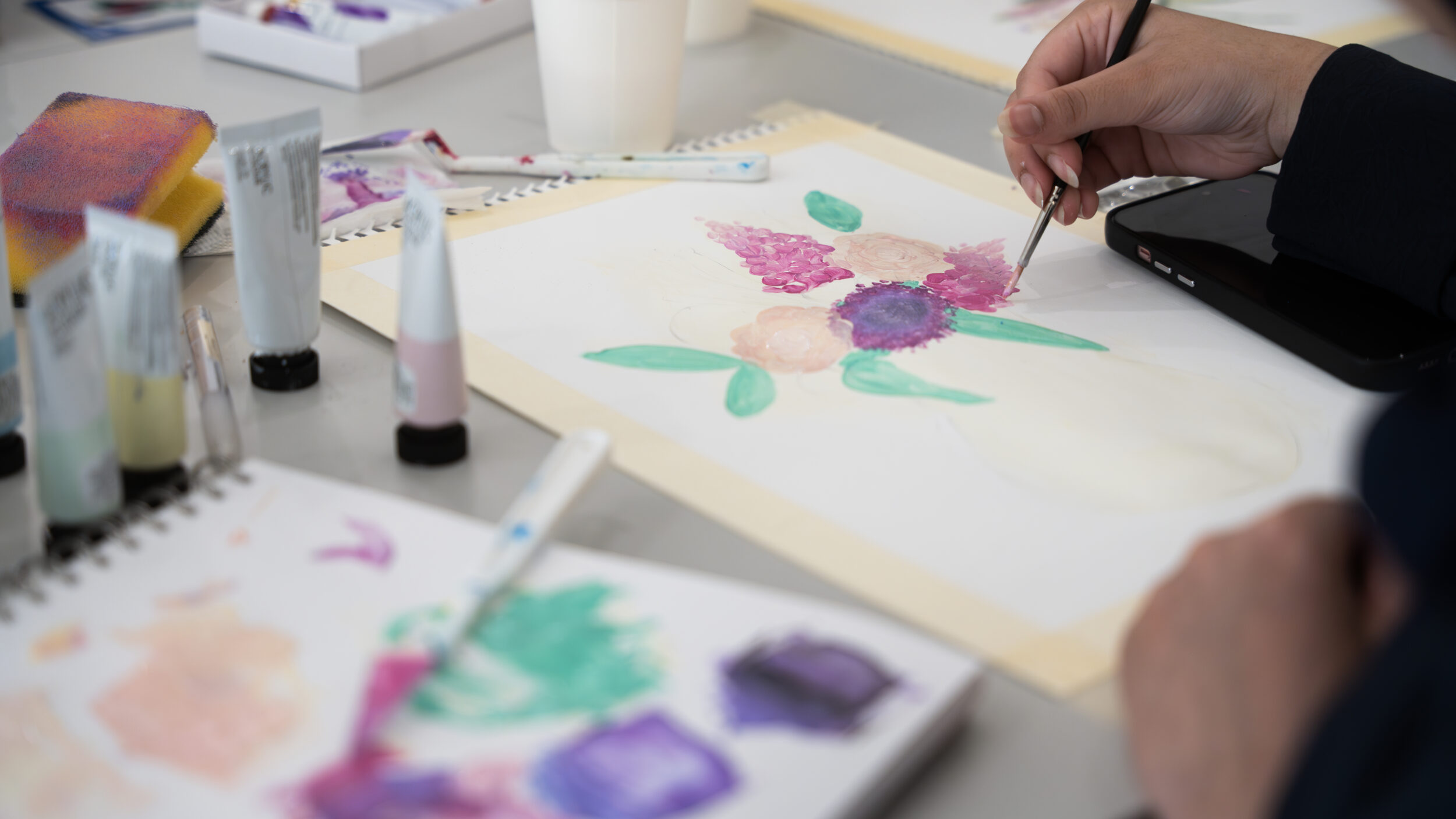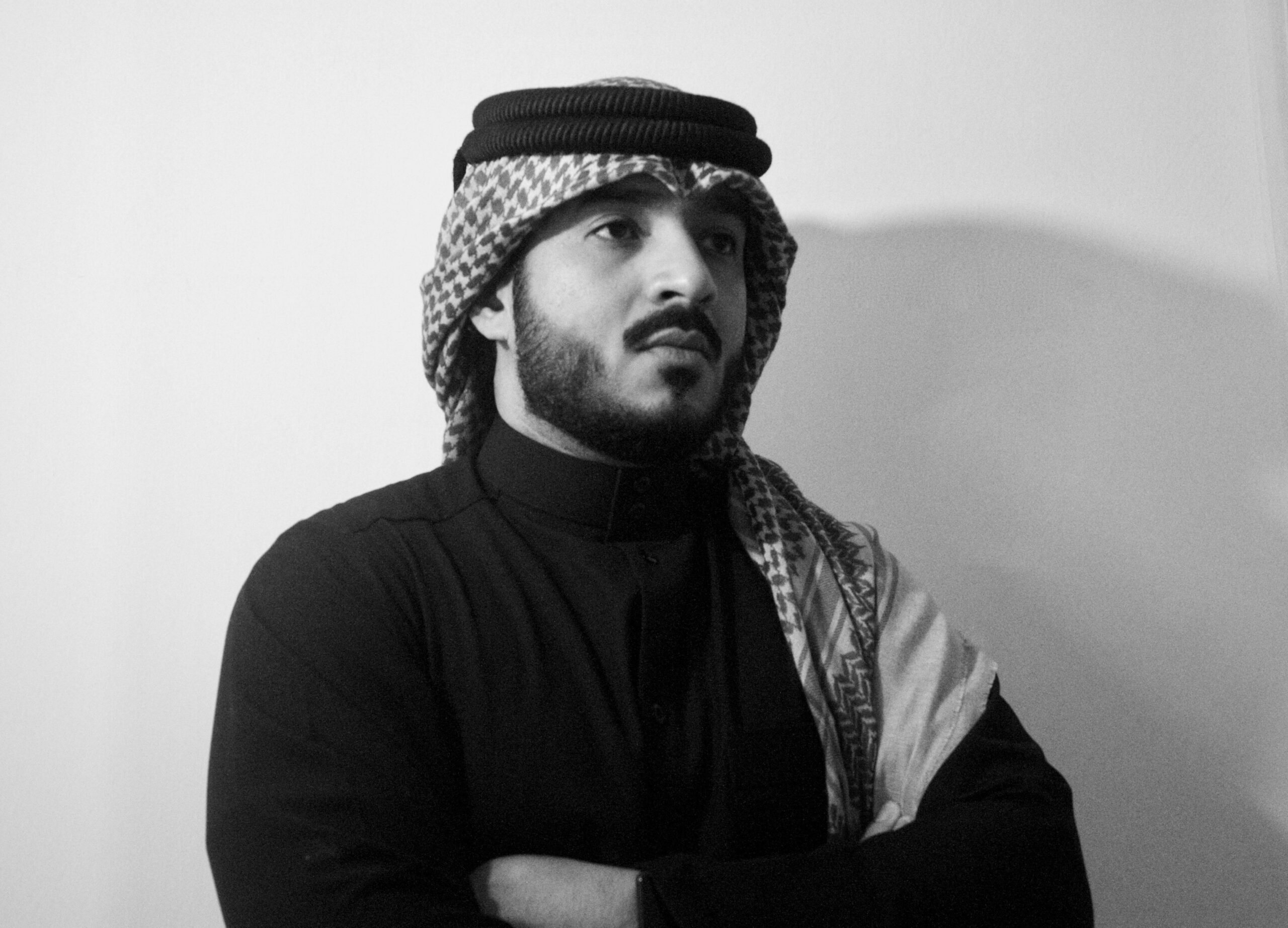- Academics
- Admissions & Enrollment Services
- Research
- Academic & Creative Spaces
- Strategic Partnerships
- Our Impact
- Student Affairs
- Campus & Community
Week 2 & 3: Program Major : FINE ARTS (PAPR)

About this class
This is a major course for the Summer Art and Design Program 2025 This course cannot be taken separately.
By the end of the course, students will have developed foundational skills in drawing, painting, printmaking, and sculpture, while gaining a broad understanding of key movements and ideas in contemporary art. They will learn how to look at, interpret, and critique artworks, and practice writing about both their own creations and the work of others. Through hands-on projects and critical discussions, students will create a personal and meaningful body of work, while engaging with a range of global and local contemporary artists whose practices reflect the diverse concerns of today’s art world.
Studio Projects
Project 1: Portraits of the Present
Medium: Drawing & Painting
Concept: Global Modernism, Identity, Hybridity
Project 2: Material Truths
Medium: Sculpture/ Installation
Concept: Politics of Materials & Everyday Objects
Project 3: Print is Power
Medium: Printmaking
Concept: Protest, Multiples, Visual Language
Class Outline
Class 1: Introduction & Project 1 start : What is Contemporary Art?
- Mini-lecture:
- Define “contemporary art” vs. “modern”. Overview of current global practices: personal, political, playful, poetic.
- Artists:
- Njideka Akunyili Crosby – layered portraits combining Nigerian domestic imagery with Western painting styles
- Salman Toor – South Asian diaspora, old-master style meets iPhone light
- Zineb Sedira – photography and video exploring identity, migration, and memory
- Studio: Begin expressive self-portrait with drawing and paint.
Class 2: Looking Closely: How to Look at Art
- Mini-lecture:
- Form, content, context, and personal response. Writing about art: description, interpretation, analysis.
- Artists:
- Lynette Yiadom-Boakye – fictional Black subjects; what happens when we don’t know who we’re looking at?
- Kerry James Marshall – visibility of Black life in “Western” painting tradition
- Studio: Continue portraits, respond to discussion in visual choices.
Class 3: Modernism & Identity.
- Mini-lecture:
- Global modernism: modern art didn’t only happen in Europe. Local legacies, non-Western visions of modernity.
- Artists:
- Ibrahim El-Salahi – Sudanese modernism fusing Islamic calligraphy and Cubism
- Etel Adnan – color, abstraction, and memory in Lebanese landscapes
- Wifredo Lam – Afro-Cuban Surrealism, colonial histories in form
- Studio: Introduce collage elements into portrait, explore hybridity in technique and identity.
Class 4: Critique & Project 2 Start: Conceptual Art & Material Meaning
- Critique:
- Class discussion and peer feedback on portraits
- Mini-lecture:
- What is conceptual art? Idea over object, but still… objects matter. Intro to Material Politics.
- Artists:
- Khaled Jarrar – uses concrete from the Israeli occupied territories separation wall, passport stamps, border narratives
- Danh Vo – fragments of history: letters, objects, colonial residue
- Eva Hesse – material fragility, feminist body politics
- Studio: Begin sculpture project. Students bring and repurpose personal or found materials.
Class 5: Sculpture: The Politics of Materials
- Mini-lecture:
- Material as message: fragility, strength, disposability, excess.
- Artists:
- El Anatsui – bottle caps become gold cloths; consumption, transformation
- Mona Hatoum – kitchen tools turned violent; exile, domesticity
- Subodh Gupta – stainless steel tiffins and buckets; India’s economic contrasts.
- Studio: Develop sculptural works, build narratives from the materials themselves.
Class 6: Critique & Project 3 Start: Print is Power
- Critique:
- Reflect on sculpture: how does it feel, what does it say?
- Mini-lecture:
- Printmaking as reproduction, resistance, and rapid communication. Image + Text = Power.
- Artists:
- Guerrilla Girls – feminist posters, public art, anonymity as resistance
- Emory Douglas – Black Panther Party graphic designer, powerful iconography
- For Freedoms – contemporary billboard activism, rethinking civic art.
- Studio: Start poster-based printmaking project with stencils, lino(maybe), or mono-printing.
Class 7: Visual Language & Protest
- Mini-lecture:
- Protest graphics, public visibility, the ethics of design.
- Artists:
- Barbara Kruger – red/white/black declarative text-images, consumer critique
- Shepard Fairey – “Obey,” “Hope,” populist design for political statements
- Taring Padi – Indonesian collective; large-scale woodcut banners, community collaboration.
- Studio: Continue prints, focus on clarity, repetition, and message.
Class 8: Writing About Art
- Mini-lecture + writing workshop:
- How to describe what you see. Personal interpretation and political, cultural and social context. Practice short pieces of writing about your own work and others’.
- Activities:
- “Write the wall label” for a classmate’s work.
- “What do I want people to feel when they see this?”
- Studio: Final touches to all artworks, writing integrated into work or display prep
Class 9: Curation & Display
- Mini-lecture:
- How to install work, curate meaning, group pieces. Building narratives through sequence, pairing, and space
- Studio: Prep mini exhibition, photo documentation of all three projects
Class 10: Final Critique & Celebration
- Students present 3 projects + select one written reflection
- Group critique and discussion
- Informal exhibition walk-through and closing celebration
Materials needed
Please note: VCUQatar reserves the right to cancel classes for which not enough participants are registered. Already paid fees will be refunded.
Please do not purchase materials until VCUQatar has sent final course confirmation.
Items to buy for this class
- Watercolor + acrylic sets
- Brushes
- Drawing materials (charcoal, graphite, markers)
- Mixed media paper
- canvases with some canvas fabric roll
- Recycled/found materials (participants bring objects from home)
- Printmaking ink,
- rollers,
- scrapers,
- aprons
- Fabric scraps, newspapers, magazine clippings
- Glue,
- tape,
- scissors,
- X-acto knifes,
- hot glue gun with glue sticks, drill with bits and screws, wood scraps(from woodshop – to be provided)
- Access to basic print press or hand-printing station (at VCUarts Qatar – PAPR)
On occasions, there may be additional materials to be purchased, and if so, it will be advised by the instructor.
Where to buy your materials
Most of the materials are available from any art supply shop, for example:
- Cass Art (Fire station)
- Jarir Bookstore: on Rayyan Road or Salwa Road
- Color Note: on Al Nasser Street
- Ibn Al Qayyim: at Markhiya Roundabout
- Al Rawnaq
Schedule
Start: Sun, July 20, 2025
End: Thu, July 31, 2025
Lessons: 10
Days: Sunday through Thursday
Time: 10 am to 1 pm
Location: VCUarts Qatar Building – Room 166
Instructors

Habeeb M. Abu-Futtaim
Habeeb M. Abu-Futtaim is an artist, educator, and Arab art specialist based in Doha. Born and raised in Qatar with a multi-cultural Hadhrami Yemeni background, he holds a BFA in Painting and Printmaking and a minor in Art History from Virginia Commonwealth University in Qatar. He later pursued a Master’s in Museum and Gallery Practice from University College London. Abu-Futtaim has been part of several Biennials and group shows internationally including Berlin, Dubai, Doha, Santa Cruz, and more, alongside notable Arab artists. His work is part of several collections including the Barjeel Art Foundation, Museum of Contemporary Art Santa Cruz, and other private collections. Abu-Futtaim co-founded and led the Modern and Contemporary Arab Art Auctions at AlBahie Auction House in Doha for over seven years from 2017-2024 and helped with the presence and growth of the Arab art market in the region and internationally.
Abu-Futtaim is currently a Junior Faculty and Artist in Residence with the Department of Painting and Printmaking at Virginia Commonwealth University School of the Arts in Qatar.

